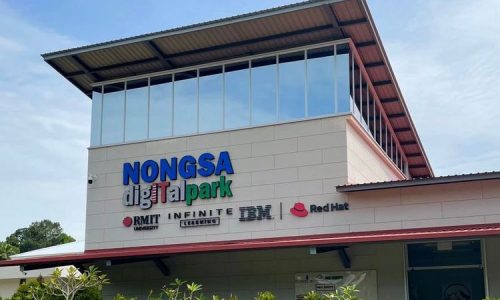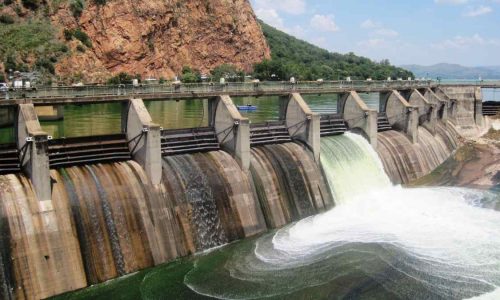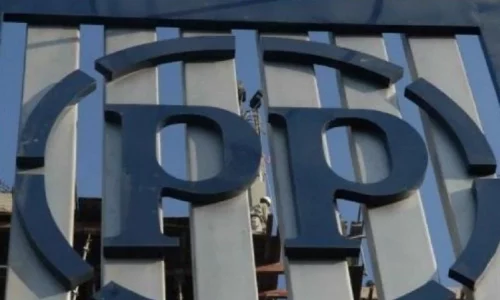Telecommunication service operator PT XL Axiata Tbk (EXCL) has allocated IDR 8 trillion (US$ 527 million) for its 2023 Capital expenditure (Capex) for the company’s business expansion and development of network infrastructure.
As the second largest telecommunications firm in Indonesia, XL has its services covering Java, Bali, Lombok and several cities in Sumatra, Kalimantan and Sulawesi. Founded in 1989, its majority shareholder is Axiata Investments (Indonesia) Sdn Bhd. At the end of 2010, the company had more than 22,000 BTS towers across Indonesia and in 2019 its subscribers reached 55.1 millions.
XL focuses on 4G network
The 2023 Capex was smaller than in 2022 which reached IDR 9 trillion. The company would use the Capex to support the company’s growth pillars, which are business expansion and development of network infrastructure, XL Axiata Head of External Communications Henry Wijayanto said.
“The sources of funding come from a combination of internal cash and debt financing, both from bank loans and bonds and sukuk,” he said, as quoted by bisnis.com, on February 20, 2023.
The 2022 Capex absorption was reflected in the total number of the company’s 2G and 4G Base Transceiver Stations (BTS), which reached 144,768. A total of 91,632 units were 4G BTS, which was a 19% increase compared to the same period in 2021. The level of connectivity to the fiber optic network reached 54%.
The company is currently tidying up its 3G or refarming process, which remains about 1,300 BTS. XL Axiata hopes that it will be able to deactivate everything by the end of the year.
“Yes, it is our hope (to turn off 1,300 3G BTS). Until now, almost all 3G networks have been rearranged to 4G,” said Wijayanto. He added that there were several active 3G BTS located in certain places as the company would ensure a smoothing transition process toward 4G.
Opportunities in telco
XL Axiata also implies positive outcomes in the telecommunication industry in 2023, that could create a profit through these opportunities:
- Fixed data service: There is still low penetration for this service, which will be a good potential for XL to venture into individual consumers and corporate segment.
- Strong digital content demand: The demand from the public remains high for this hybrid lifestyle for work, study, shopping and recreation.
- Simple but complete service: The public wants to have a simple yet complete services. This could create a good opportunity for product convergence to increase user experience with quality content and services.
XL Axiata is seeking to double its convergence strategy in 2023 by adding more features to its services. It also focuses on increasing the proportion of the family segment to supply a comprehensive yet relevant ecosystem for its users.
On the other hand, the company will also increase its digital synergy operations, by using convergence, and omnichannel touchpoints to unite distribution routes, also to exploit the synergy of more than 130,000 distribution touch points.
“We hope that all of these will be able to increase XL SATU sales to the family market. A dynamic pricing will also boost the relevance of XL One with each cluster in particular,” said President Director and CEO Dian Siswarini on February 20, 2023.
The company also aims to add 450,000 home-connect and 150,000 new consumers to use its convergence service.
Risks in telecommunication industry
Technology disruption – which is driven by the rapid advancement of 5G networks, the internet of things (IoT), artificial intelligence (AI) and cloud computing – is one of the many challenges in telco industry. The rapid progress in these things create both opportunities and challenges for telecommunication companies. The company needs to invest more infrastructure and technologies to remain competitive with other rivals.
The vast archipelagic Indonesia has its downsides since there are many areas that lack the necessary infrastructure in supporting fast and reliable internet connections. That includes fiber optic cable networks, insufficient power supply and limited access to satellite or wireless services.
With 270 million population, more Indonesians gain access to the internet with the existing networks that has created a congested and slow speed in connection. Indonesia’s major problem is the lack of connectivity in many areas to the internet, which is mainly caused by limited infrastructure and affordability challenges.
Fixed broadband service penetration was still low, which was only at 4% in 2021, according to the World Bank data.
“This is due to Indonesia’s geographical location as an island nation with over 17,000 islands. It is not easy [to overcome this],” said Spire Research and Consulting COO Jeffrey Bahar. “It takes a big commitment and courage to take risks for internet service provider (ISP) companies to roll out a fixed broadband network in the country.”









